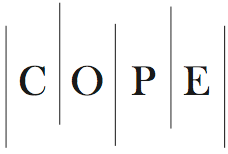About Journal of Experimental and Theoretical Analyses
Aims
The Journal of Experimental and Theoretical Analyses (JETA) (ISSN 2813-4648) is an international, peer-reviewed, open access journal that publishes research articles, reviews, and technical notes in the field of engineering. Our primary goal is to provide a comprehensive forum for the dissemination of research that bridges the gap between experimental results and theoretical models, with a strong emphasis on analytical methods.
We welcome submissions that advance the understanding of how analytical techniques can be applied to solve complex engineering problems across various specialized fields, including bioengineering, materials science, electrical and electronic engineering, mechanical engineering, environmental engineering, and food engineering. The journal places a strong emphasis on detailed methodological approaches, encouraging authors to provide extensive experimental and/or methodological details to ensure reproducibility of results.
By encouraging a multidisciplinary approach, JETA aims to make a significant contribution to the advancement of engineering science, providing insights that lead to practical applications and the development of new technologies.
By fostering a multidisciplinary approach, JETA seeks to contribute significantly to the ongoing development of engineering science, providing insights that lead to practical applications and the development of new technologies.
Scope
- Bioengineering analysis:
◦ Spectroscopy analysis focused on biotechnology;
◦ Statistical analysis of experiments, e.g., Z- and t-tests, analysis of variance;
◦ Bio-medical sensors: functional analysis and testing;
◦ Footprint enzymatic analysis methods;
◦ Analysis of results from analytical techniques;
◦ Advanced approaches for functional characterization;
◦ Imaging analysis;
◦ New approaches for dataset analysis.
- Material engineering analysis:
◦ Microscopy analysis techniques (especially TEM (transmission electron microscopy) and SPM (scanning probe microscopy));
◦ Tomography techniques and related image analysis;
◦ Diffraction techniques;
◦ Surface analysis;
◦ Spectrometry techniques (especially FTIR (Fourier transform infrared spectroscopy) and Raman spectroscopy);
◦ Thermal analysis;
◦ Rheological analysis;
◦ Performance and durability analysis.
- Electric and electronic engineering analysis:
◦ Statistical analysis in electric and electronic engineering;
◦ Noise reduction using statistics;
◦ Advances in NDT (non-destructive testing) and real-time measurement approaches;
◦ Failure analysis of devices and systems;
◦ Multiscale modeling and simulation methods.
- Mechanical engineering analysis:
◦ Modeling, implementation, and testing methods for Additive Manufacturing;
◦ Stress and failure analysis;
◦ System analysis;
◦ Analytic tools.
- Environmental engineering analysis:
◦ Statistics for environmental analysis;
◦ Advances in environmental analytical methods;
◦ Qualitative and quantitative methods analysis;
◦ Advances in LCA (life cycle assessment) analysis.
- Food engineering analysis:
◦ Quality control and traceability of foodstuffs;
◦ Microextraction methods for analyte determination in complex matrices;
◦ Volatile compounds in food matrices;
◦ Advances in methods for improving food quality and safety feasibility;
◦ Qualitative and quantitative method analysis for food processing;
◦ Protocols and analysis for the reliability of functional foods;
◦ Analysis of sustainable procedures for recycling wasted foodstuff.
MDPI Publication Ethics Statement
 MDPI is a member of the Committee on Publication Ethics (COPE).
MDPI takes the responsibility to enforce a rigorous peer-review together with strict ethical policies and standards to ensure to add
high quality scientific works to the field of scholarly publication. Unfortunately, cases of plagiarism, data falsification, inappropriate
authorship credit, and the like, do arise. MDPI takes such publishing ethics issues very seriously and our editors are trained to proceed in
such cases with a zero tolerance policy. To verify the originality of content submitted to our journals, we use iThenticate to check submissions against previous publications.
MDPI is a member of the Committee on Publication Ethics (COPE).
MDPI takes the responsibility to enforce a rigorous peer-review together with strict ethical policies and standards to ensure to add
high quality scientific works to the field of scholarly publication. Unfortunately, cases of plagiarism, data falsification, inappropriate
authorship credit, and the like, do arise. MDPI takes such publishing ethics issues very seriously and our editors are trained to proceed in
such cases with a zero tolerance policy. To verify the originality of content submitted to our journals, we use iThenticate to check submissions against previous publications.
Book Reviews
Authors and publishers are encouraged to send review copies of their recent related books to the following address. Received books will be listed as Books Received within the journal's News & Announcements section.
MDPI
Grosspeteranlage 5
CH-4052 Basel
Switzerland
Copyright / Open Access
Articles published in JETA will be Open-Access articles distributed under the terms and conditions of the Creative Commons Attribution License (CC BY). The copyright is retained by the author(s). MDPI will insert the following note at the end of the published text:
Reprints may be ordered. Please contact for more information on how to order reprints. Announcements regarding academic activities such as conferences are published for free in the News & Announcements section of the journal. Advertisement can be either published or placed on the pertinent website. Contact e-mail address is . For further MDPI contacts, see here.Reprints
Announcement and Advertisement
Editorial Office
Contact us


